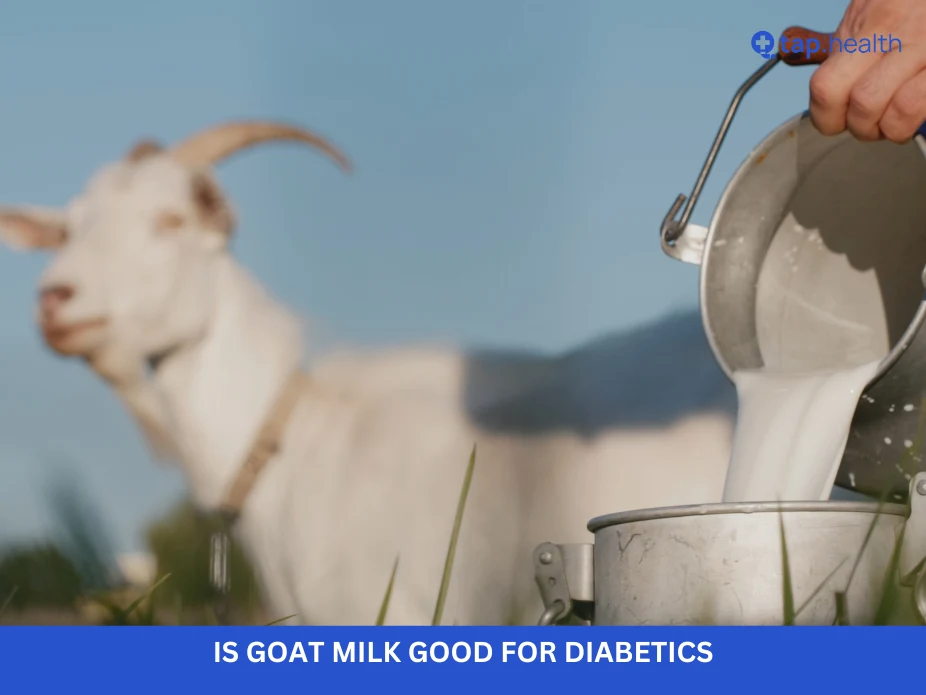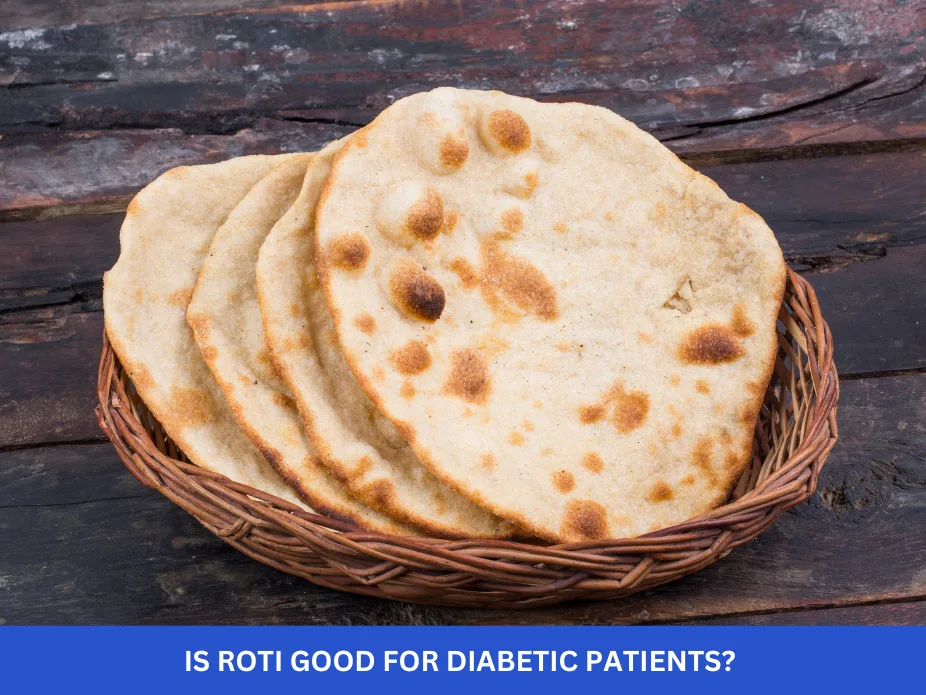When it comes to managing diabetes, every little dietary choice can make a difference. Many people with diabetes focus on maintaining stable blood sugar levels by watching what they eat. One question that often comes up is whether goat milk is a good option for diabetics. If you’re wondering about this, you’re not alone! Goat milk has gained popularity as a potential healthful alternative to cow’s milk, but does it offer any special benefits for diabetics? In this blog, we’ll break down everything you need to know about goat milk and its impact on diabetes.
Let’s dive in and see whether goat milk is a good option for diabetics.
What is Goat Milk?
Goat milk is the milk produced by goats, and it’s been consumed by humans for thousands of years. It has a slightly different nutritional profile than cow’s milk, including a distinct taste and texture. Goat milk is rich in essential nutrients such as protein, calcium, phosphorus, and vitamins A and D. But how does it compare to cow’s milk when it comes to managing blood sugar and diabetes?
Nutritional Composition of Goat Milk
Goat milk has several health benefits, especially for people who may have difficulty digesting cow’s milk. Here’s a breakdown of the nutrients found in goat milk:
- Protein: Goat milk contains high-quality proteins that are easier to digest compared to cow’s milk. It contains all the essential amino acids your body needs.
- Fat: Goat milk has smaller fat globules, which makes it easier to digest. It also contains medium-chain fatty acids, which may have health benefits.
- Calcium and Vitamin D: These are crucial for bone health, which is particularly important for diabetics, who are at higher risk of osteoporosis.
- Vitamin A: Essential for eye health and immune function.
- Potassium: Helps regulate blood pressure, which is important for people with diabetes, as they are at higher risk of heart disease.
Can Goat Milk Help with Blood Sugar Control?
While goat milk isn’t a magical cure for diabetes, it does offer some unique benefits that may support blood sugar control. The key lies in its nutritional composition.
- Low Glycemic Index
The glycemic index (GI) is a scale that measures how quickly a food raises blood sugar levels. Foods with a high GI can cause spikes in blood sugar, while those with a low GI have a smaller impact. Goat milk has a relatively low glycemic index compared to cow’s milk, which means it may be less likely to cause blood sugar spikes. This makes goat milk a better option for diabetics looking to manage their blood sugar. - Better Digestibility
Goat milk contains smaller fat globules and a slightly different protein structure than cow’s milk, making it easier for the body to digest. For people with diabetes, good digestion is important for managing overall health. Because it’s easier to digest, goat milk may help reduce the risk of gastrointestinal problems that could impact blood sugar management. - Rich in Nutrients
The high calcium content in goat milk is important for diabetics, especially those on insulin or medications that can weaken bones over time. Calcium and vitamin D work together to help maintain bone density and reduce the risk of fractures, a concern for people living with diabetes. Additionally, potassium in goat milk helps regulate blood pressure, which is another concern for those with diabetes. - Supports Weight Management
Obesity is one of the biggest risk factors for developing Type 2 diabetes. Goat milk’s smaller fat globules and medium-chain fatty acids might help in managing weight more effectively. These fats are known to boost metabolism, helping the body burn fat more efficiently, which could contribute to better weight control for diabetics.
Real-Life Scenarios: Can Goat Milk Benefit Diabetics in India?
Let’s take a look at how goat milk has affected people living with diabetes in real-life scenarios.
Scenario 1: Amit’s Experience with Type 2 Diabetes
Amit, a 45-year-old man from Delhi, was diagnosed with Type 2 diabetes a few years ago. He was looking for ways to improve his health and manage his blood sugar levels. After reading about the benefits of goat milk, he decided to try it instead of cow’s milk. Amit found that drinking goat milk in the morning helped keep his blood sugar stable and prevented mid-day crashes in energy levels. He also noticed that he felt less bloated after meals compared to when he drank cow’s milk.
His experience aligns with research suggesting that the unique properties of goat milk may make it easier for diabetics to manage blood sugar levels and improve digestion.
Scenario 2: Priya’s Experience with Gestational Diabetes
Priya, a 32-year-old woman from Mumbai, developed gestational diabetes during her pregnancy. Her doctor suggested trying goat milk as part of her diet to help manage her blood sugar. Priya found that goat milk was not only a gentle alternative to cow’s milk but also supported her body’s digestion and calcium needs during pregnancy. Since switching to goat milk, Priya noticed that her blood sugar levels were more stable throughout the day, and her weight gain was more controlled.
This experience illustrates how goat milk can help during different phases of diabetes, including pregnancy-related diabetes.
Expert Contributions: Insights on Goat Milk and Diabetes
Dr. Ravi Kumar, an endocrinologist based in Bengaluru, explains the impact of goat milk on diabetes:
“Goat milk is a great option for diabetics, as it’s easier to digest and has a lower glycemic index than cow’s milk. For those struggling with digestive issues or trying to manage blood sugar more effectively, goat milk can be a valuable addition to their diet. It’s also a rich source of essential vitamins and minerals, which are critical for overall health management in diabetics.”
Source: Indian Diabetes Association
Can Goat Milk Be a Healthy Part of a Diabetic Diet?
While goat milk has numerous potential benefits, it’s important to remember that it should be consumed in moderation and as part of a balanced diet. Here are some key recommendations for incorporating goat milk into a diabetic-friendly diet:
1. Use Goat Milk as a Substitute
If you’re used to drinking cow’s milk, switching to goat milk might be a good option. Try replacing your regular milk with goat milk in smoothies, coffee, or cereals. Just make sure to monitor your blood sugar levels to see how it affects you personally.
2. Watch for Added Sugars
Like any dairy product, be cautious about flavored goat milk that may contain added sugars. Added sugars can spike blood sugar levels, so it’s best to stick with plain, unsweetened goat milk.
3. Combine Goat Milk with Fiber-Rich Foods
To help stabilize blood sugar levels, pair goat milk with fiber-rich foods like whole grains, vegetables, and fruits. The fiber will slow the absorption of glucose into the bloodstream, reducing the risk of blood sugar spikes.
4. Check for Lactose Sensitivity
While goat milk is easier to digest than cow’s milk, some people may still experience discomfort or digestive issues. If you notice any symptoms of lactose intolerance, such as bloating, gas, or stomach cramps, consider trying lactose-free goat milk or consulting with your doctor.
FAQ Is Goat Milk Good for Diabetics?
1. Is goat milk better than cow’s milk for diabetics?
Goat milk may be a better option for some diabetics due to its lower glycemic index, easier digestibility, and richer nutrient profile. However, it’s important to monitor blood sugar levels to see how it affects you individually.
2. Can goat milk cure diabetes?
No, goat milk is not a cure for diabetes. However, it may support blood sugar management and overall health when combined with a balanced diet and proper medical treatment.
3. Can I drink goat milk every day if I have diabetes?
Yes, you can drink goat milk every day, but like all foods, it should be consumed in moderation. Make sure it’s part of a balanced diet that includes a variety of nutrients.
4. Is goat milk safe for people with Type 1 diabetes?
Yes, goat milk is safe for people with Type 1 diabetes. It can be a nutritious addition to your diet, but make sure to track your blood sugar levels to understand how it affects you.
Conclusion
In conclusion, goat milk can be a good option for diabetics, especially for those looking for an alternative to cow’s milk. With its lower glycemic index, better digestibility, and nutrient-rich profile, it offers several health benefits that may support blood sugar control and overall well-being. However, as with any dietary change, it’s important to listen to your body, monitor your blood sugar levels, and consult with your healthcare provider to ensure that goat milk is a good fit for your individual needs.



